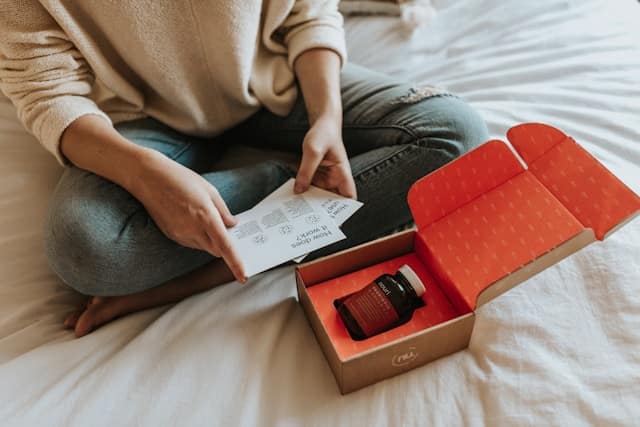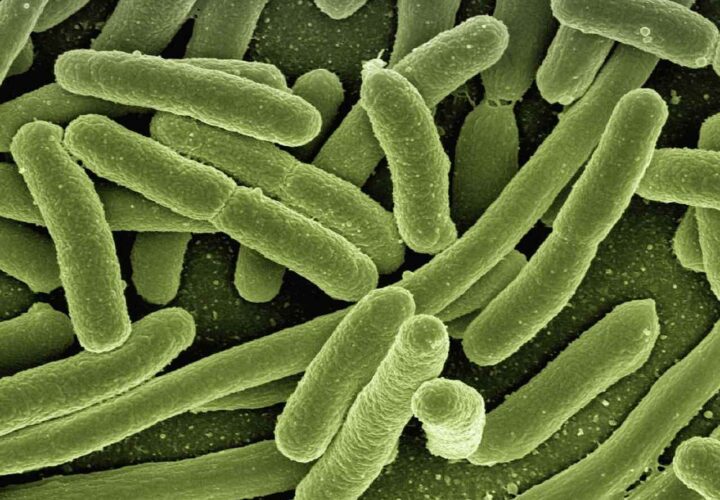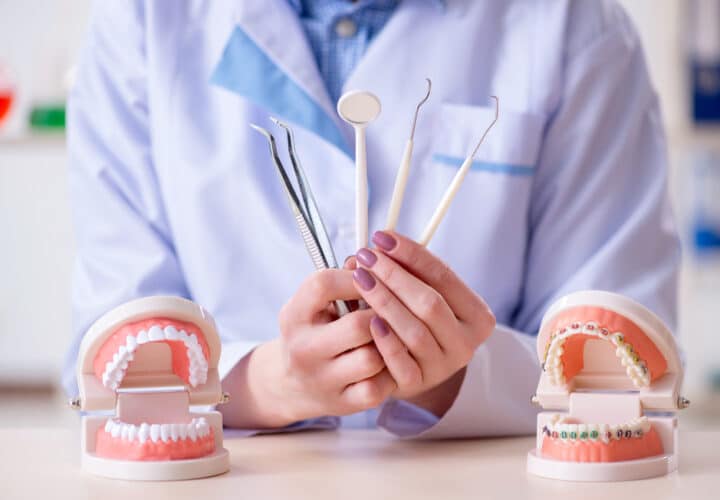"Probiotics" has become a buzzword in the conversation about brain health and general wellness. Is there scientific evidence to support these sometimes pricy supplements? Gastroenterologists, pathologists and gerontologists weigh in.
Heard of probiotics? They’re those pills — often found in a refrigerated section of the vitamins aisle at your local pharmacy or natural grocer — with labels proclaiming they contain billions of living microorganisms. They can sometimes cost $30, even $40 per bottle, and their contents are said to have the power to heal your gut, protect women’s health, and — according to some products — even boost your mood, memory, and brain power. Consumers are eating them up: The global probiotics market was valued at $54.73 billion in 2022. But what do scientists say about the real value of probiotics when it comes to cognitive function and brain health?
Dr. Satish Rao, a gastroenterologist at Augusta University doesn’t recommend consumers spend big on probiotics for memory, thinking, and other brain-related applications.
“I think the jury’s still out,” Rao said of potential cognitive benefits from probiotic supplements. He doesn’t believe, he added, that the current gold-standard scientific research supports the claim that “probiotics improve cognition” — especially not in supplement form.
What are probiotics?
The term probiotics applies to a diverse group of microorganisms, primarily bacteria and yeasts which are believed to exert health benefits when consumed in adequate quantities.
These microorganisms — with long, unappetizing names like Lactobacillus and Bifidobacterium — also “live” in health foods like kombucha, yogurt, kefir, sauerkraut, kimchi and miso.
How many of these organisms do you need to eat to make a difference? Probiotics are measured in a microbiology measurement unit called “colony forming units” (CFUs). Labels might brag about the presence of “10 billion CFUs” of probiotics, all right inside a palm-sized bottle of capsules.
However, if you want to get more of these helpful microorganisms into your gut, dietary experts and nutritionists say it is better to get them from your food, not from a capsule. It’s easier to know your body is able to process them — and it’s easier to know that what you’re consuming is safe.
The supplements industry at large is known as a “Wild West” — products are not subject to FDA approval before hitting the market, leading to numerous brain health supplement makers (including Neuriva Plus and Prevagen) settling false-advertising lawsuits after making scientifically unverified claims about the benefits of their products. Other supplements might not contain what the labels say they do, and some a study recently found, might even contain harmful contamination or dangerous ingredients.
But, people are still shopping the supplements aisle, looking for those high numbers of CFUs. That’s because they’re drawn to the punch-packing volume offered by supplements. A serving of miso just can’t compete, Rao says: “You can never, ever, ever put the amount of bacteria in fermented foods that you can put in a capsule these days,” he told Being Patient.
Prebiotics vs. probiotics: What’s the difference?
If you’re shopping the supplement shelf, you might see, right next to the probiotics, a similar-looking product: prebiotics. What’s the difference between probiotics and prebiotics, and if you do want a supplement form, which one should you pick?
Probiotics are living, beneficial organisms that reside in our microbiome. But in order to thrive and reproduce, they need food, too. Prebiotics are a type of specialized plant fiber that feed those beneficial organisms. When prebiotics are broken down, it creates short-chain fatty acids which improve metabolic and overall health.
Prebiotics are found in fiber-rich plant foods including:
- Broccoli, cabbage, onion, sweet potato, tomato, collard greens, spinach, shallots, garlic
- Bananas, berries, kiwi, pomegranate, apples
- Barley, oats, rice, corn, whole wheat
Probiotics are known for boosting gut health. What’s their link to brain health?
The “microbiome” is a community of tiny living things called microbes, such as bacteria, viruses, and fungi in the body. They are key players, affecting how humans digest food, fighting off bad germs, and even playing a role in how one feels, physically and emotionally. This community lives in the stomach and intestines and every individual human’s microbiome is unique.
The gut-brain connection has garnered significant attention in recent years, sparking interest in the idea that a healthy gut microbiome may improve brain function and spiking sales of probiotics.
“The majority of serotonin — a neurotransmitter that makes us feel happy — is actually produced in the gut,” geriatrics and gerontology expert Barbara Bendlin at the University of Wisconsin-Madison told Being Patient. Many medications used to help treat anxiety and depression often target ways to increase the level of serotonin in the brain, she explained: “There’s a long nerve called the vagus nerve that connects the gut and the brain. So there’s a lot of signaling that happens between the brain and the gut.”
Gut Microbes and Alzheimer’s: A Conversation With Barbara Bendlin
Some scientists suggest that probiotics can help reduce symptoms of anxiety and depression and other mental health conditions, improve mood, reduce stress level, enhance memory and cognitive function, and even lower the risk of neurodegenerative diseases like Alzheimer’s due to this brain and microbiome connection.
In one such study, pathologist and immunologist Gautum Dantas at the Washington University School of Medicine and his colleagues studied a group of people at risk of Alzheimer’s based on family history or genetics.
“In those [at-risk] individuals compared to healthy controls, we saw these differences in the microbiome,” Dantas told Being Patient, and added that the differences appeared before beta-amyloid or tau proteins in the brain.
By leveraging this biome and brain connection, studies like Dantas’ would pave the way for easier testing procedures for Alzheimer’s in older adults. “You could test people at high risk more frequently through a simple stool test,” Dantas said.
Researchers conducting a 2023 study analyzed the gut microbes of 2,077 adults with Alzheimer’s and 2,081 healthy controls. They found that people with Alzheimer’s disease tended to have lower levels of six specific types of gut bacteria, suggesting they may be protective, and higher levels of four other types of bacteria relative to healthy controls.
As more studies continue to be conducted it opens the door to new forms of early detection diagnostics and potential treatments for Alzheimer’s.
OK, so: Could these brain benefits come in a probiotics capsule?
Scientists are still exploring, through clinical studies, how probiotics could affect the human brain. But most studies so far involve mice or small human trials, making it hard to draw firm, consistent conclusions.
There are some examples of studies where results suggest probiotics do yield brain benefits, like greater mental flexibility and reduced stress. But these studies are very small, experts say, and overall, scientists don’t yet fully understand the gut-brain relationship — and the complex role of the gut microbiota.
Christopher Chi Hang Mak, a researcher at the University of Cambridge told Being Patient that the vast majority of studies supporting the benefits of microbes in probiotics in brain function are either non-controlled, or are biased due to the studies being funded by large supplement-makers or stakeholders.
“The current data suggests that probiotics do not yet have a significant enough effect [in studies] for it to be warranted as a primary mode of treatment,” Mak said.
Rao agreed. “I think there may be some benefit [to probiotics], but who is likely to be a beneficiary?” Rao said. “What kind of probiotic at what dose, and in what capsule formation is not known. Until we resolve that, I don’t think it’s a good idea whether you’re healthy or not healthy.”
The bottom line: Say no to capsules, and yes to fermented foods
Maintaining a diverse and balanced microbiome through a healthy diet, rich in fiber and fermented foods, appears to be a key factor in supporting this intricate relationship between the gut and the brain.
Rao suggests getting probiotics through fermented foods such as kombucha, coffee and kimchi, where probiotics are naturally occurring and in a more digestible dose than some capsule forms, which can contain a billion times as many probiotics as fermented foods, he says.
“I’m a strong advocate of fermented foods,” Rao said. “They are the best way to enrich our colonic microbiota. And if we are deficient in certain probiotics, then perhaps the fermented foods will help to compensate for that and I think that is the best way to do it.”
“The main difference really is the amount of bacteria that is present there, and the type of bacteria when we are limiting to a few organisms,” Rao said of probiotic capsules. “But in fermented foods you have a lot more variety, or diversity of bacteria, and the concentration is much lower.”
At the end of the day, there’s still no lone, magic pill to improve brain health and memory, prevent Alzheimer’s or dementia, nor treat most existing cognitive conditions. But gold-standard studies show that getting vitamins and nutrients from a balanced diet, engaging in physical activity, and incorporating stress management into daily routines go a long way. Probiotics have the potential to be a part of this holistic approach, but as far as their true effect on the brain and overall health, more research is needed at this time.
Lauren Fetten lives in Los Angeles and is a graduate of Scripps College where she studied Economics and Chinese.




